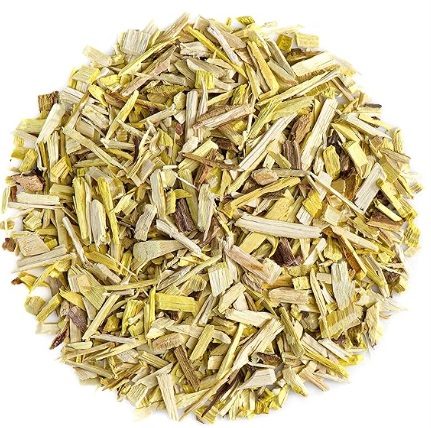Bayberry Bark

  | Bayberry Bark in TCM:Explore the properties of Bayberry Bark according to Chinese
Nutrition and Traditional Chinese Medicine (TCM):
Temperature: warm
Channels: LU, ST, HT, LV, GB
Flavors: bitter, sour, pungent
Special Properties:
circulates qi, circulates blood, disperses cold, resolves phlegm
Bayberry bark is known in Traditional Chinese Medicine for its ability to dispel cold yin-type energy and resolve phlegm. It is one of the few foods/herbs that can disperse cold in the gallbladder directly. Bayberry is considered a warming and stimulating tonic by traditional herbalists. It was traditionally used to increase the body's "fire" and reduce excess water. Bayberry is similar to Cinnamon in that it is excellent in combination with other herbs to increase the effectiveness of the whole but is best tolerated in moderate rather than high doses. Bayberry combines perfectly with Cinnamon to treat blood stagnation, with Panax Ginseng for cold and tired deficiency syndromes, and with Licorice root to tonify a weak digestive system. In Chinese medicine Bayberry bark is the part most often used, but other herbal traditions also utilize the leaves and fruits.
Perhaps the most essential usage of Bayberry is for the treatment of sinus problems. Bayberry helps in relieving some of the symptoms associated with sinus such as cough and over-reactive mucous membrane. The dried bayberry bark root is used as a nasal astringent to shrink and contract the tissues in the sinus cavity and dry the secretions.
Bayberry is known as a stimulant, astringent, emetic, antispasmodic, alterative, expectorant, diaphoretic, tonic. Bayberry is a fine expectorant and decongestant. It is considered a remedy for coughs, colds and flu, especially relieving conditions where there is excess mucus, phlegm and sinus congestion. Bayberry is also helpful in healing mucous membranes, treating mucous colitis and reducing mucus in the intestines.
Bayberry is an antibiotic and a tonic which helps to lower fever. As a diaphoretic, Bayberry promotes heavy sweating during which wastes and toxins are released through the skin. Bayberry is also believed to stimulate lymphatic drainage and helps to reduce phlegm and mucus in both the respiratory and digestive systems.
It also helps the body resist disease and supports the immune system. One of its components, myricitrin, exhibits antibiotic activity against a wide range of bacteria and infection. Bayberry has also been used to treat diarrhea, dysentery, bowel inflammation, sore throats, canker sores in the mouth and throat, colds and flu.
Considered an herbal stimulant, Bayberry invigorates and strengthens the body and works to increase vitality. It also stimulates the circulatory system and helps to improve circulatory disorders. Moreover, as a stimulant, Bayberry is said to be beneficial for improving low thyroid activity.
A decoction of Bayberry is beneficial as a gargle in sore mouth and throat. It also forms an excellent gum wash for tender, spongy, and bleeding gums.
Warnings / Contraindications:
When used properly and in designated therapeutic dosages, bayberry is considered safe and offers no side effects. Over dose of the herb may lead to nausea and vomiting. The herb should not be used in – infants, toddlers, pregnant & lactating women, those with high BP and water retention (edema) problems, and those with serious organ related ailments. Those with pre-existing gastro intestinal issues should use the herb only after consulting a qualified medical practitioner.
Disclaimer: In accordance with our terms of service, by using this web site you agree that none of the information found on this web site constitutes medical advice. You should always consult your doctor before trying any particular food or herbal remedy to treat disease.
Folk remedies presented on this site are designed to address specifc TCM diagnoses, and are not one-size-fits-all. If you would like to learn more about Traditional Chinese Medicine (TCM) and how it relates to Chinese Nutrition, you can book in a free call with a licensed professional. There is no obligation to purchase.
[CLICK HERE for your free INITIAL CONSULTATION] |

